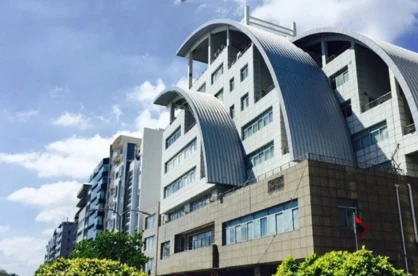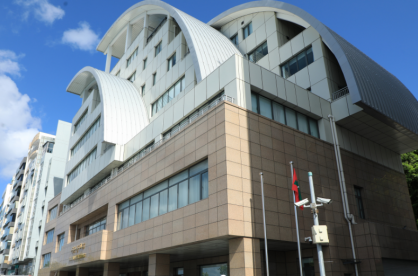Macroeconomic stability and long-term growth
Is there a lack of policy incentive to learn from lessons of experience?

Is there a lack of policy incentive to learn from lessons of experience?

This is part one of a three part exploration of the Maldives' Macroeconomic stability and growth. For part two on why per capita development cost in the Maldives is on the rise, click here. For part three on achieving fiscal sustainability, click here.
Economics is the study of how humans, both individually and collectively, make decisions in the face of scarcity. Two major branches of economics are microeconomics and macroeconomics. Microeconomics involves the study of the behavior and performance of individual units within the economy, such as the individual market, consumer, firm, and the worker. Macroeconomics, on the other hand, is concerned about the study of the behavior and performance of the economy as a whole and of work and saving choices of individual economic agents from which macroeconomic activity emerges.
This series of articles seeks to bring to focus the importance of macroeconomy and macroeconomic stability for sustainable development. The first article explains why there is focus on macroeconomic policies and identify linkages with macroeconomic stability and key development outcomes – private sector development, poverty reduction and decentralization and balanced growth.
In later articles, how the Maldives has performed in terms of meeting its development goals and macroeconomic stability is discussed. It reviews the main components of development agenda. and key outcomes, and highlights the issues stemming from long-term macroeconomic instability. The third article in this series examines the interactions between politics and fiscal policy on economic outcomes, in an attempt to illustrate the case of the Maldives since the onset of multi-party politics in 2008. The discussion analyses the issue of incentives for policy makers to promote macroeconomic stability. The article discusses a credible approach to the design of public policy to promote the economic welfare of the public in a sustainable manner.
Macroeconomic policy is concerned with the how policymakers influence the behavior of macroeconomic aggregates (domestic demand and output, the balance of payments, fiscal revenues and expenditure, and savings and investment) in order to improve the overall performance of the economy. At a theoretical level, the goal is to bring real GDP into line with the maximum attainable potential real GDP - the level of real GDP at which there are enough jobs to provide employment for every person who wants to work and at which government has done all it can to eliminate disincentives for workers to seek jobs and for employers to offer them. Macroeconomic stability exists when these key relationships and aggregates are in balance. There is a vast body of knowledge covering the importance of macroeconomic stability and how instability is caused by bad policy sets and unfavorable external conditions. Policies aimed at boosting short-run growth, for example, often have side effects on an economy that are sometimes severe, protracted for many years and has strong financial implications for the cost of reversal. Sound macroeconomic policies are, therefore, essential to maintain macroeconomic stability needed to create an environment that is conducive to broad based development and long-term growth.
Macroeconomic stability does not depend only on a set of macroeconomic policies, but also on other supply side policies and market conditions. To ensure long-term macroeconomic stability, countries need to support demand management policies with credible structural reforms that can help to build confidence, improve debt dynamics, stimulate investments and improve economic resilience in the long-term. Such reforms include (a) institutional, administrative and other growth-enhancing reforms that provide an enabling environment for private sector growth and the development of small and medium enterprises, (b) decisive action in tackling corruption, (c) improving government efficiency, (d) investing in people (health, education and social security), (e) reforming state-owned enterprises and (f) enhancing basic trade creating infrastructure. While there are many important linkages that help to explain why macroeconomic stability is so important, we focus here on the following areas (that has multiple impact on development and growth) to show the importance of macroeconomic stability in achieving development goals.
As the major contributor to economic growth and employment creation, the private sector also has a central place in efforts to reduce poverty. Development of a strong and dynamic private sector, including small and medium enterprises, is crucial to long-term economic growth and a necessary condition for sustained poverty reduction. Most governments have a strong interest in fostering a business environment that enables the private sector to flourish and fulfil its role as the main engine of growth. Macroeconomic stability is also the cornerstone of any successful effort to increase business development. Econometric evidence of investment behavior indicates that private investment is significantly and negatively influenced by uncertainty stemming from economic instability.
Macroeconomic stability should be a key component of any poverty reduction strategy. Economic growth is the single most important factor influencing poverty, and macroeconomic stability is essential for high and sustainable rates of growth. To ensure macroeconomic stability, the government budget (including the country’s poverty reduction strategies) must be financed in a non-inflationary manner. The formulation and integration of a country’s macroeconomic policy and poverty reduction strategy must be an iterative process. Programs need to be well articulated, then costed, and financed within the overall budget.
Engaging in a decentralization process affects all spheres of society, from the nature and the quality of governance to national wealth and economic growth and, more broadly, to citizen well-being. Decentralization is a growing worldwide trend over the past 50 years, which reflects a more democratic and participatory approach to government. It is implemented to varying degrees in many countries and has had profound implications due to its complex and systemic nature. A first step to decentralization is defining the parameters of fiscal decentralization - the structure of governance, potential for tax income and a sound financial management framework. It is also equally important to develop a clear, well sequenced and transparent multi-year budget framework to enable the central government to effectively control macroeconomic management functions to ensure stability.
Part two; Why per capita development cost in the Maldives is on the rise
Part three; Achieving fiscal sustainability



